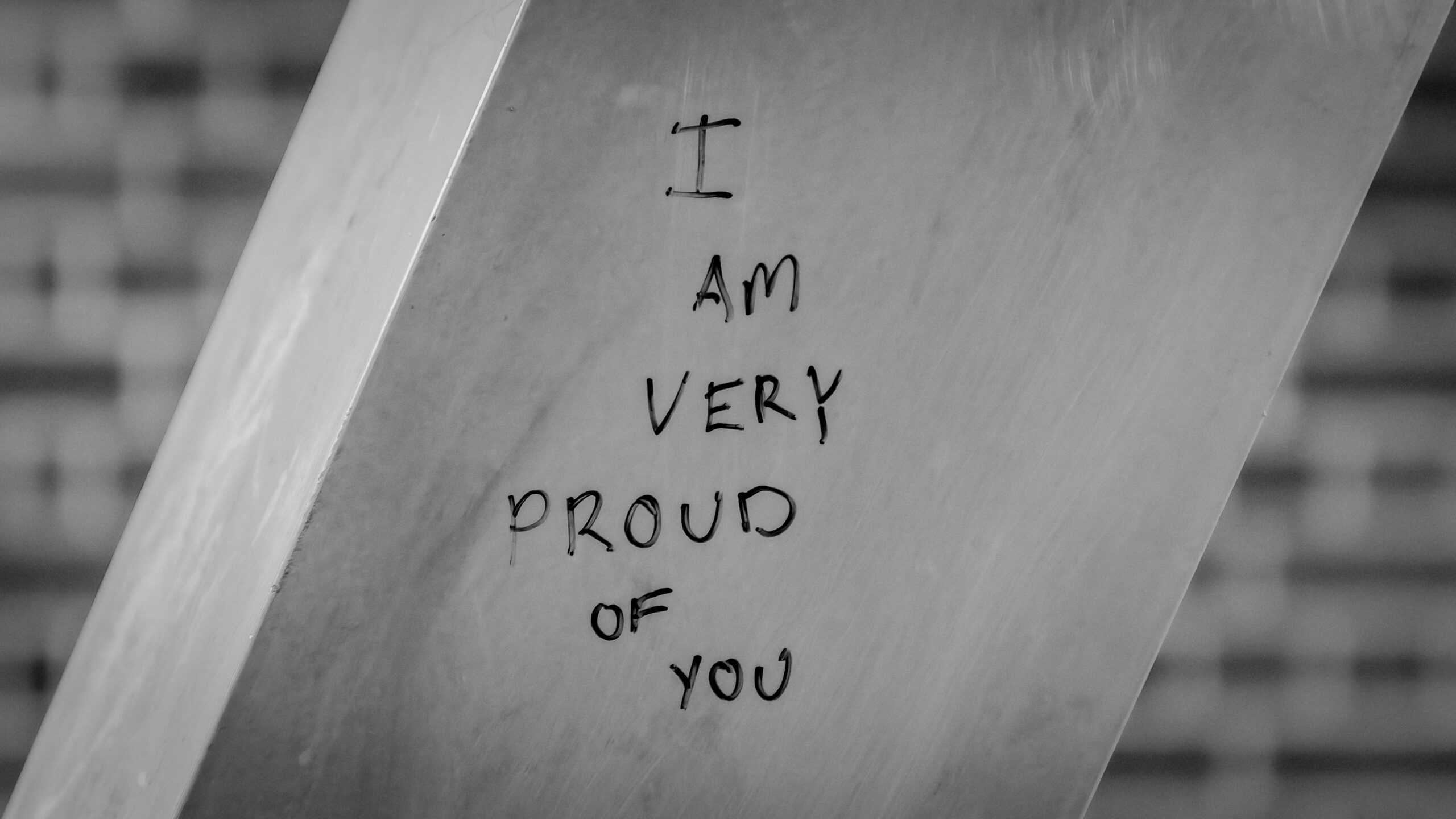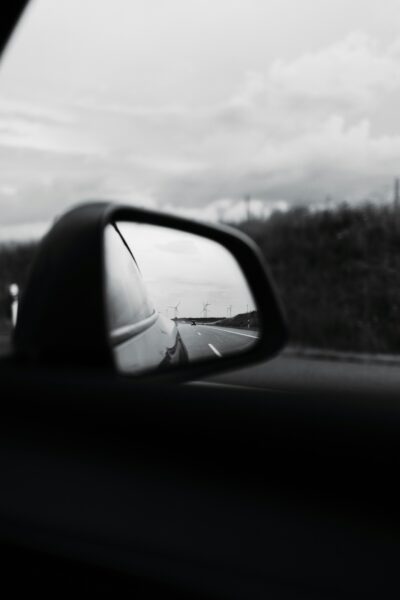/ News Posts / Uncoupling Rumination from Reflection
Uncoupling Rumination from Reflection
A Call for Compassionate, Curious Dispositions
By NAfME Member Lisa Martin, Music Educators Journal Academic Editor
This article first appeared in the December 2024 issue of Music Educators Journal.
While in class recently, our community discussed the reflective process and its essential role in deepening our understanding of past experiences. Through a Deweyan lens, we unpacked how looking inward, outward, backward, and forward each afford different vantage points that illuminate varied, critical aspects of a particular experience. As part of our discussion, we tackled the questions, “Given the benefits of reflective practice, why might the process of reflection be seen as ‘extra’ rather than a central element of one’s routine?” and “Why might some individuals opt not to engage in reflection?”
In our discussion, students seemed to equate reflection with stifled forward momentum; that is to say, many felt that looking backward stunted progress toward goal achievement. This perception effectively rendered reflection counterproductive—or at least counter to the type of productivity students most valued, which typically centered on checking the next box on an ever-active list of to-dos. Further, as one might expect, students cited time limitations as the primary barrier for engaging in regular reflective practice. With time being a limited resource, many students felt pushed to prioritize what needed to be done over reflecting upon that which had already been done; in other words, reflection was seen not as a necessary aspect of the learning process but rather as “nice to do, if you can.”
As music educators, we, too, might find ourselves bypassing opportunities for reflection. Teacher educator Barbara Larrivee notes the essentiality of reflective practice, pointing out that when our habits or beliefs are left unexamined or unchallenged, we can become “trapped” in suboptimal cycles or routines that do not best serve our students or ourselves.1
Even though my wise mind knows reflective practice is a sound, worthwhile, and productive step toward forward progress, my students’ sentiments of struggle landed quite close for me. I engage in the process as often as I am able (in terms of both scheduling and mental bandwidth), but there are seasons when there are certainly more misses than hits. What stuck with me the most about this class discussion, however, was this: Several students shared that they ultimately avoided reflection because looking inward can be a complex and emotional task. Many found it difficult to find softness for themselves in the reflective process. The discussion revealed a resounding sense that reflection can feel synonymous with self-criticism, and as such, reflection opens a loaded door toward rumination.
Scholars Randy Sansone and Lori Sansone define rumination as “a detrimental psychological process characterized by perseverative thinking around negative content that generates emotional discomfort.”2 Rumination functions primarily as a maladaptive coping strategy, whereby feelings of distress are intensified through persistent focus. Although not all rumination is inherently damaging, self-critical ruminative behaviors rarely translate to solutions-based efforts.3
Researchers have identified connections between rumination and various markers of psychological distress, such as negative affect, and in education, rumination can positively predict teacher stress and burnout.4 Those who teach music may be particularly at risk, as musicians often exhibit elevated levels of rumination when compared with nonmusicians.5 The notion of rumination calls to mind the countless times I have thought back on a performance, an audition, or a job interview, focusing solely on the small handful of things that did not go as planned rather than the many aspects that went well. Certainly, many of us have found ourselves talking our colleagues or students through similar experiences.
It may be easy to mistake rumination for productive, critical, professional self-reflection. After all, when ruminating, are we not spending time considering the details of what transpired on a given day, during a performance, or in a communication chain? Are those actions not reflective, in some manner?
In fact, time and energy spent looking back is not an inherently healthy and productive effort; equally as important is the disposition we carry into such explorations as well as the goals of those reflective efforts. Researchers have determined that certain dispositions can moderate effects of various job-related stressors that may surface in the reflective process.6 It is helpful to conceive of reflection, then, as an adaptive process grounded in a constructive-oriented disposition.7
Because we work in a discipline where qualitative judgment abounds, establishing growth-centered dispositions can be challenging; after all, such qualitative judgments can beget crippling self-criticism. In the end, conflating reflection with self-criticism can ultimately couple ruminative behaviors with the reflection process. This can result in cyclical, damaging narratives that impede our perceived self-worth and our sense of self-determination.
Knowing the challenges that rumination can pose, how might we decouple rumination from the reflective process, both for ourselves as teachers and for our student musicians?
The answer might begin with compassion and curiosity.
In a 2022 column in Psychology Today, Dr. Palena Neale notes the importance of inviting compassion and curiosity into the reflective process. According to Dr. Neale, these two habits of mind can help us “create space” between ourselves and the self-critical narrative that can surface in the reflective process.8 She goes on to share that inviting compassion and curiosity into the reflection process often involves reframing attitudes or questions that arise.
A teacher might reflect on a lesson, for example, and ascribe the self-critical comment, “I shouldn’t have rehearsed this section that way—that was a disaster.” Reframing this comment as a curiosity—“I wonder why I made that choice in that particular moment, and what other approaches could I explore in the future?”—gives credence to the initial pedagogical choice while also making room for alternatives. Choosing curious questioning over self-critical commentary creates a more self-compassionate space for reflection. This self-compassion invites a softness that may reframe resistance to the reflective process.
Choosing curious questioning over self-critical commentary creates a more self-compassionate space for reflection.
Compassionate curiosity can benefit not only our own reflective process but also our relationship with our students. Educator Kyle Redford points out that approaching our classrooms with compassion and curiosity can help “interrupt our potential biases and assumptions about our students’ thinking and abilities.”9 Oftentimes, we may jump to conclusions about a student’s intent or attitude in a given situation; opting to approach such circumstances from a position of curiosity instead of judgment may open the door to understanding our students in more nuanced ways.
In the end, while avoiding self-reflection may serve as a mechanism for self-preservation, reframing the reflective process can help shift the experience from self-critical to self-understanding.
As we [prepare for a new] school year, may we all do so with more compassion and more curiosity.
Footnotes
- Barbara Larrivee, “Transforming Teaching Practice: Becoming the Critically Reflective Teacher,” Reflective Practice1, no. 3 (2000): 293–306.
- Randy A. Sansone and Lori A. Sansone, “Rumination,” Innovations in Clinical Neuroscience9, no. 2 (2012): 29–34.
- Katja Cosir, Sara Tement, Marta Licardo, and Katarina Habe, “Two Sides of the Same Coin? The Role of Rumination and Reflection in Elementary School Teachers’ Classroom Stress and Burnout,” Teaching and Teacher Education47 (2015): 131–41; Nicole A. Dunn and Andrew F. Luchner, “The Emotional Impact of Self-Criticism on Self-Reflection and Rumination,” Psychology and Psychotherapy 94, no. 4 (2022): 1126–39.
- Ibid.
- Michael M. Roy, Joseph R. Radzevick, and Laura Getz, “The Manifestation of Stress and Rumination in Musicians,” The Cupola: Scholarship at Gettysburg College, September 2016.
- Dunn and Luchner, “The Emotional Impact.”
- Ibid.
- Palena R. Neale, “Manage Your Inner Critic with Curiosity and Compassion,” Psychology Today, November 7, 2022.
- Kyle Redford, “To Understand Your Students, Use ‘Compassionate Curiosity,’” Education Weekly, July 3, 2018.
Photo at top by Peter Bryan on Unsplash
About the author:
 Lisa Martin is the Academic Editor of Music Educators Journal. She is Assistant Professor of Instruction at Ohio University in Athens, Ohio.
Lisa Martin is the Academic Editor of Music Educators Journal. She is Assistant Professor of Instruction at Ohio University in Athens, Ohio.
Interested in reprinting this article? Please review the reprint guidelines.
The National Association for Music Education (NAfME) provides a number of forums for the sharing of information and opinion, including blogs and postings on our website, articles and columns in our magazines and journals, and postings to our Amplify member portal. Unless specifically noted, the views expressed in these media do not necessarily represent the policy or views of the Association, its officers, or its employees.
Published Date
June 24, 2025
Category
- Social Emotional Learning
- Teacher Self Care
Copyright
June 24, 2025. © National Association for Music Education (NAfME.org)






